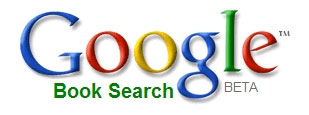 Google has had its share of allegations that it has a monopoly in the online search/advertising world. The most recent of these accusations comes from the book scanning program that Google runs. Google ultimately plans to make the scanned books accessible online to more readers to help eliminate lost works and let readers opt out of print material.
Google has had its share of allegations that it has a monopoly in the online search/advertising world. The most recent of these accusations comes from the book scanning program that Google runs. Google ultimately plans to make the scanned books accessible online to more readers to help eliminate lost works and let readers opt out of print material.
The problem for many publishers and publishing groups is that they feel that Google is infringing on their copyright by making the works available in a digital version. Google proposed a settlement with author groups in the U.S. in September that would allow it to continue scanning the books. The same week, the FTC asked Google to draft a privacy policy that would limit the secondary personal data use that the scanned books offering would allow. This was an effort to prevent Google from targeting ads at readers that was “contrary to reasonable expectations.”
Reuters reports that Google and author groups are trying to answer the questions relating to copyright concerns that have been raised in the U.S. and overseas. Google filed a 30-page court filing Friday that eliminated a section of the proposed settlement deal that would require the registry created, if the deal was enacted, to give Google at least as good a deal as any competitor to access the registry and the digitized works.
The Justice Department felt that the registry had a conflict of interest since it was tasked with locating the writers and paying them for their online sales. The unclaimed funds from the use of author’s works under the new plan would eventually go to charity if the writers can’t be located. The new agreement has to be approved by the courts. The Justice Department recommended that the original version of the plan be rejected because it might also violate antitrust law and copyrights.
Richard Sarnoff, president of the Bertelsmann Digital Media, “We’ve had numerous discussions and quite a lot of dialogue with the Justice Department and feel we’ve addressed their key concerns.”
Part of the new plan would also limit book in the registry to works with copyrights in the U.S. or those published in Australia, Canada, and the UK. This was in response to significant international objection to the deal on grounds that non-English speaking authors had no negotiations in the deal with Google.
Reuters reports that German book publishers were criticizing regulators in Europe for not taking a stand against the Google book deal. The French were also seeking to block the deal and reportedly asked a Paris court to fine Google for infringement when books by the publishers were digitized.
Amazon is also fighting the deal in courts to prevent Google from digitizing books. Amazon has a stake in the deal because a free digital Google library could put a crimp in sales from the Amazon digital bookstore.
A court document filed by Amazon stated, “[The Google Books deal] is unfair to authors, publishers, and others whose works would be the subject of a compulsory license for the life of the copyright in favor of Google and the newly created Book Rights Registry. [It] represents an unprecedented rewriting of copyright law through judicial action.”
Editors' Recommendations
- These 6 tweaks take MacBooks from great to nearly perfect
- You can still buy the M1 MacBook Air, and it’s cheaper than ever
- How to delete Google Chrome on Windows and Mac
- MacBook Pro 16 vs. MacBook Pro 14: The important differences
- The best MacBook to buy in 2024


